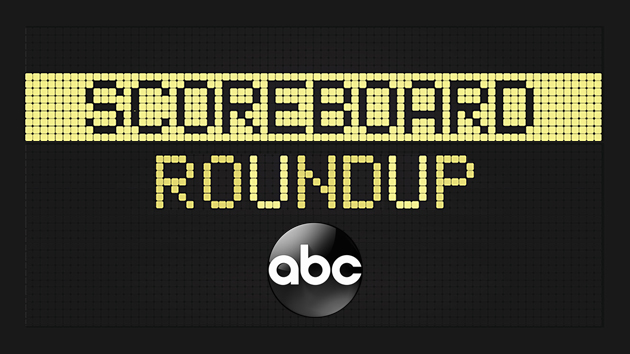
(NEW YORK) — Here are the scores from Sunday’s sports events:
NATIONAL FOOTBALL LEAGUE
Bills 27, Jaguars 24
49ers 23, Eagles 19
Chargers 3, Patriots 16
NATIONAL BASKETBALL ASSOCIATION
Pelicans 118, Magic 128
Nets 98, Grizzlies 103
76ers 115, Raptors 116
Knicks 123, Trail Blazers 114
Spurs 103, Timberwolves 104
Heat 112, Thunder 124
Bucks 104, Nuggets 108
Wizards 93, Suns 112
Hawks 124, Warriors 111
Rockets 98, Kings 111
NATIONAL HOCKEY LEAGUE
Devils 3, Jets 4
Penguins 0, Bruins 1
Capitals 2, Predators 3
Blue Jackets 3, Mammoth 2
Golden Knights 7, Sharks 2
Copyright © 2026, ABC Audio. All rights reserved.









